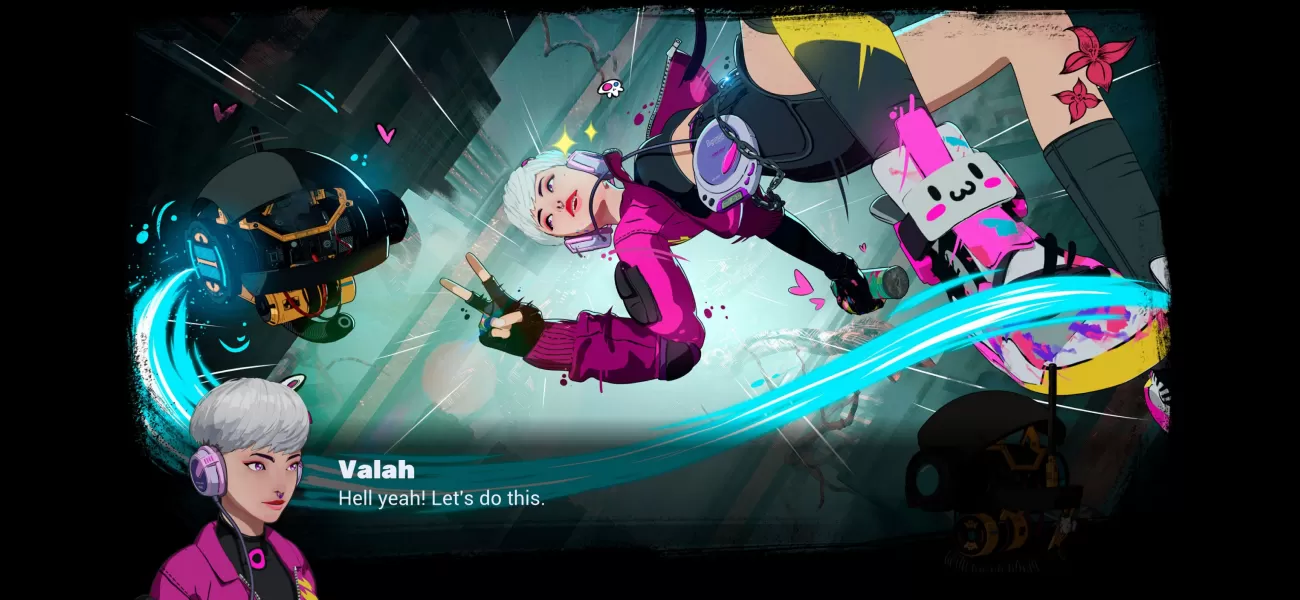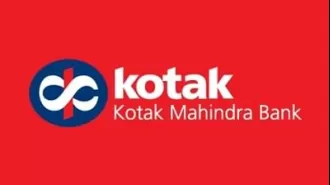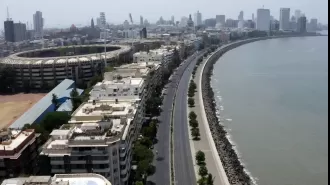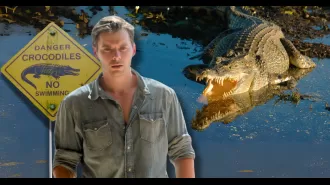A preview of RKGK / Rakugaki that offers a hands-on experience with a fast-paced rush.
"An indie platformer paying tribute to 90s action games is shaping up to be one of the top titles of the year, featuring graffiti-style visuals."
May 7th 2024.

Attention all Jet Set Radio fans, have we got some exciting news for you! There's a new indie game on the horizon that is sure to catch your attention and it's called RKGK, or Rakugaki for short. This game is a tribute to the action-packed games of the late 90s and it's shaping up to be one of the best indie titles of the year. Developed by Wabisabi Games, this graffiti-based platformer is sure to leave a lasting impression.
Now, you may not think of Mexico as a hub for game development, but that might all change with Rakugaki. We had the opportunity to virtually catch up with the development team and even got to play a demo of the game. Let me tell you, these guys are a passionate and talented bunch. Led by CEO and game director Anwar Noriega, they poured their hearts and souls into this project.
According to Noriega, Rakugaki is a one-player 3D platformer that draws inspiration from the late 90s platformers and their love for Japanese pop culture. Think anime, manga, and electronic music, all blended together with graffiti culture. It's like a love letter to everything they adored as kids. As art director Esteban Lezama puts it, they used to wake up early on Saturdays just to catch shows like Dragon Ball and Ghost in the Shell, which ultimately fueled their passion for creating art.
Speaking of art, Rakugaki has a distinct visual style that is both colorful and reminiscent of games like Hi-Fi Rush and Jet Set Radio. It's a beautiful fusion of anime and graffiti, creating a unique and captivating world. But it's not just about the visuals, graffiti plays a major role in the gameplay as well. You play as Valah, a graffiti artist in a dystopian urban world ruled by the evil Mr. Buff. His propaganda-filled TVs have turned the inhabitants into mindless zombies, and it's up to Valah and her trusty bot to graffiti over these screens and bring back some color and rebellion to the city.
But Valah's graffiti skills go beyond the typical tagging. She can create vibrant multimedia masterpieces on huge screens, incorporating animated elements and nods to Mexican art styles like lucha libre masks and the Day of the Dead. Even in regular gameplay, she's constantly splashing paint all over the monochrome surfaces, bringing life and anarchy to the city.
Noriega also shed some light on the game's name, admitting that it may be a bit tricky to pronounce. That's why they've included the option to shorten it to RKGK, following the modern trend of removing vowels. But fear not, he explained that Rakugaki is a Japanese word that means doodle or sketch, often used by kids. It's also been used by Japanese graffiti artists as a way to reclaim the negative connotation put upon them by the government.
We were lucky enough to play a demo of the game, which consisted of three levels. Wabisabi Games revealed that the full game will have 30 levels divided into six chapters, with a playtime of around six hours. Completionists can stretch that to 12 hours by completing challenges and collecting all the hidden items scattered throughout the game.
The first level served as a tutorial, introducing Valah's various moves at a steady pace. Even though it was a slower level, it still had a great sense of flow. Valah has all the classic platformer moves like jumping, double jumping, wall climbing, and a melee attack provided by her robot. But she also has graffiti-powered moves, like surfing on paint and dealing damage to enemies, and a hover jump fueled by paint. She can even latch onto rails and slide along them, although we did find it easier to narrow the gap with a dash jump before doing so.
While Rakugaki does have some traditional platforming elements like checkpoints and collectibles, Valah's paint-powered moves add a unique twist to the gameplay. For example, she can surf over tiles on the floor to collect coins, and as she takes out enemies and collects objects, she builds up a Defacer meter. When it's full, she enters Defacer mode, which amps up her abilities and provides a visual feast for the player.
It's best to aim for Defacer mode, as it not only feels satisfying to pull off combos, but it also helps you achieve higher ratings at the end of each level. However, there are times when you'll want to take a more careful approach. The level design can be complex, and some of Mr. Buff's screens are hidden away, waiting to be tagged by Valah. These screens also serve as a way to earn currency to unlock new stages, adding another layer of replayability.
There's also another currency called Ghosts, which can be found in hidden corners of each level. These can be used for customization in Valah's hideout, which serves as the game's hub. You can use Ghosts to buy new outfits and different graffiti art to spray on the screens. The hideout is also where you can adjust Valah's graffiti color palette, allowing you to personalize your experience even further.
In conclusion, RKGK or Rakugaki is shaping up to be an exciting and visually stunning game. With its old-school platforming style and unique graffiti-inspired gameplay, it's sure to be a hit among Jet Set Radio fans and anyone looking for a fun and immersive experience. Keep an eye out for its release on May 22 for PC.
RKGK / Rakugaki – A Graffiti-Fueled Platformer That Will Delight Jet Set Radio Fans
For fans of Jet Set Radio, there's an exciting new game on the horizon that is sure to capture your attention. Rakugaki, developed by Wabisabi Games, pays homage to the action-packed games of the late 90s and is shaping up to be one of the best indie titles of the year.
While Mexico may not be known for its game development, Rakugaki is here to change that perception. With its vibrant and stylized visuals, reminiscent of Hi-Fi Rush and Jet Set Radio, and fast-paced platforming gameplay inspired by early 3D games, Rakugaki is a must-play for fans of the genre.
We had the opportunity to virtually catch up with the development team and get our hands on a demo version of the game, set to release on May 22 for PC. The team, led by CEO and game director Anwar Noriega, exudes passion and excitement for their project.
"Rakugaki is a one-player 3D platformer that combines our love for the platformers of the late 90s with our love for Japanese pop culture, including anime, manga, and electronic music, as well as graffiti culture. It's a tribute to everything we loved as kids," explains Noriega. "We grew up watching anime and waking up early on Saturdays to catch shows like Dragon Ball and Ghost In The Shell. That love for Japanese media and art inspired us to create our own."
Art director Esteban Lezama adds, "Our team has poured our hearts and souls into this game, and it really shows in the unique and unmistakable visual style we've created. We've taken inspiration from anime and graffiti and merged them into something entirely new and exciting."
Graffiti plays a major role in Rakugaki's gameplay. Players take on the role of Valah, a graffiti artist in a dystopian urban world controlled by the evil Mr. Buff. His propaganda, displayed on TVs throughout the city, is turning the population into mindless zombies. Valah's mission is to race through levels with her trusty robot companion, tagging over the TVs and fighting against Mr. Buff's reign of terror.
But Valah's graffiti is not just any ordinary tagging. In each level, she comes across massive screens that she transforms into vibrant multimedia masterpieces, complete with animated elements and 3D effects. These pieces often pay homage to local art styles in Mexico, such as the iconic lucha libre masks and the striking visuals of Day of the Dead.
Even in general gameplay, Valah's graffiti is a key element. Her paint-splattering abilities add color and life to the once-grey city, adding a touch of anarchy to her mission.
Noriega also shared the inspiration behind the game's name, acknowledging that it may be difficult to pronounce for some. "Rakugaki is a Japanese word that means doodle or sketch, often done by kids. About 30 years ago, the Japanese government and police started using it in a negative context to refer to graffiti. But the graffiti artists in Japan embraced it and started calling themselves Rakugaki artists."
We had the chance to play through a demo of the game, consisting of three levels. Wabisabi Games has revealed that the full game will feature 30 levels across six chapters, with a playtime of approximately six hours. Completing all challenges and collecting all the hidden items could extend gameplay up to 12 hours.
The first level serves as a tutorial, gradually introducing players to Valah's various moves. Despite being a slower-paced level, it still captures the game's fluid and fast-paced nature. Valah has all the classic platformer moves such as jumping, double jumping, wall climbing, and a powerful melee attack thanks to her robot companion.
But she also has graffiti-powered moves, like surfing on paint for quick movement and melee attacks, a hover jump fueled by paint, and the ability to latch onto rails and grind. These rail slides can be triggered from a distance, but players may need to use a dash jump to close the gap.
While Rakugaki features traditional platforming elements like checkpoints and collectibles, Valah's paint-powered moves add a unique twist to the gameplay. For example, she can surf over special tiles to collect coins, and as she takes out enemies and collects items, she builds up a Defacer meter. When full, she enters Defacer mode, boosting her speed, jump height, and attack power.
Building up to Defacer mode is crucial for gameplay, as it allows players to chain combos and reach higher ratings at the end of each level. But there are also moments where a more strategic approach is necessary. The level design is complex, and some of Mr. Buff's screens are hidden in hard-to-reach areas. Graffitiing over these screens earns players currency, used to unlock new stages. This adds a level of replayability for those who want to go back and find all the hidden screens.
Another in-game currency, called Ghosts, is scattered throughout each level and can be used to customize Valah's appearance and graffiti art. The game's hub, Valah's hideout, serves as a central location for players to spend their Ghosts and tinker with Valah's graffiti color palette.
In conclusion, RKGK / Rakugaki is a thrilling and visually stunning platformer that will delight fans of Jet Set Radio and action games from the late 90s. With its unique blend of anime, graffiti, and intense gameplay, it's a love letter to the team's childhood and an impressive indie game to look out for.
Now, you may not think of Mexico as a hub for game development, but that might all change with Rakugaki. We had the opportunity to virtually catch up with the development team and even got to play a demo of the game. Let me tell you, these guys are a passionate and talented bunch. Led by CEO and game director Anwar Noriega, they poured their hearts and souls into this project.
According to Noriega, Rakugaki is a one-player 3D platformer that draws inspiration from the late 90s platformers and their love for Japanese pop culture. Think anime, manga, and electronic music, all blended together with graffiti culture. It's like a love letter to everything they adored as kids. As art director Esteban Lezama puts it, they used to wake up early on Saturdays just to catch shows like Dragon Ball and Ghost in the Shell, which ultimately fueled their passion for creating art.
Speaking of art, Rakugaki has a distinct visual style that is both colorful and reminiscent of games like Hi-Fi Rush and Jet Set Radio. It's a beautiful fusion of anime and graffiti, creating a unique and captivating world. But it's not just about the visuals, graffiti plays a major role in the gameplay as well. You play as Valah, a graffiti artist in a dystopian urban world ruled by the evil Mr. Buff. His propaganda-filled TVs have turned the inhabitants into mindless zombies, and it's up to Valah and her trusty bot to graffiti over these screens and bring back some color and rebellion to the city.
But Valah's graffiti skills go beyond the typical tagging. She can create vibrant multimedia masterpieces on huge screens, incorporating animated elements and nods to Mexican art styles like lucha libre masks and the Day of the Dead. Even in regular gameplay, she's constantly splashing paint all over the monochrome surfaces, bringing life and anarchy to the city.
Noriega also shed some light on the game's name, admitting that it may be a bit tricky to pronounce. That's why they've included the option to shorten it to RKGK, following the modern trend of removing vowels. But fear not, he explained that Rakugaki is a Japanese word that means doodle or sketch, often used by kids. It's also been used by Japanese graffiti artists as a way to reclaim the negative connotation put upon them by the government.
We were lucky enough to play a demo of the game, which consisted of three levels. Wabisabi Games revealed that the full game will have 30 levels divided into six chapters, with a playtime of around six hours. Completionists can stretch that to 12 hours by completing challenges and collecting all the hidden items scattered throughout the game.
The first level served as a tutorial, introducing Valah's various moves at a steady pace. Even though it was a slower level, it still had a great sense of flow. Valah has all the classic platformer moves like jumping, double jumping, wall climbing, and a melee attack provided by her robot. But she also has graffiti-powered moves, like surfing on paint and dealing damage to enemies, and a hover jump fueled by paint. She can even latch onto rails and slide along them, although we did find it easier to narrow the gap with a dash jump before doing so.
While Rakugaki does have some traditional platforming elements like checkpoints and collectibles, Valah's paint-powered moves add a unique twist to the gameplay. For example, she can surf over tiles on the floor to collect coins, and as she takes out enemies and collects objects, she builds up a Defacer meter. When it's full, she enters Defacer mode, which amps up her abilities and provides a visual feast for the player.
It's best to aim for Defacer mode, as it not only feels satisfying to pull off combos, but it also helps you achieve higher ratings at the end of each level. However, there are times when you'll want to take a more careful approach. The level design can be complex, and some of Mr. Buff's screens are hidden away, waiting to be tagged by Valah. These screens also serve as a way to earn currency to unlock new stages, adding another layer of replayability.
There's also another currency called Ghosts, which can be found in hidden corners of each level. These can be used for customization in Valah's hideout, which serves as the game's hub. You can use Ghosts to buy new outfits and different graffiti art to spray on the screens. The hideout is also where you can adjust Valah's graffiti color palette, allowing you to personalize your experience even further.
In conclusion, RKGK or Rakugaki is shaping up to be an exciting and visually stunning game. With its old-school platforming style and unique graffiti-inspired gameplay, it's sure to be a hit among Jet Set Radio fans and anyone looking for a fun and immersive experience. Keep an eye out for its release on May 22 for PC.
RKGK / Rakugaki – A Graffiti-Fueled Platformer That Will Delight Jet Set Radio Fans
For fans of Jet Set Radio, there's an exciting new game on the horizon that is sure to capture your attention. Rakugaki, developed by Wabisabi Games, pays homage to the action-packed games of the late 90s and is shaping up to be one of the best indie titles of the year.
While Mexico may not be known for its game development, Rakugaki is here to change that perception. With its vibrant and stylized visuals, reminiscent of Hi-Fi Rush and Jet Set Radio, and fast-paced platforming gameplay inspired by early 3D games, Rakugaki is a must-play for fans of the genre.
We had the opportunity to virtually catch up with the development team and get our hands on a demo version of the game, set to release on May 22 for PC. The team, led by CEO and game director Anwar Noriega, exudes passion and excitement for their project.
"Rakugaki is a one-player 3D platformer that combines our love for the platformers of the late 90s with our love for Japanese pop culture, including anime, manga, and electronic music, as well as graffiti culture. It's a tribute to everything we loved as kids," explains Noriega. "We grew up watching anime and waking up early on Saturdays to catch shows like Dragon Ball and Ghost In The Shell. That love for Japanese media and art inspired us to create our own."
Art director Esteban Lezama adds, "Our team has poured our hearts and souls into this game, and it really shows in the unique and unmistakable visual style we've created. We've taken inspiration from anime and graffiti and merged them into something entirely new and exciting."
Graffiti plays a major role in Rakugaki's gameplay. Players take on the role of Valah, a graffiti artist in a dystopian urban world controlled by the evil Mr. Buff. His propaganda, displayed on TVs throughout the city, is turning the population into mindless zombies. Valah's mission is to race through levels with her trusty robot companion, tagging over the TVs and fighting against Mr. Buff's reign of terror.
But Valah's graffiti is not just any ordinary tagging. In each level, she comes across massive screens that she transforms into vibrant multimedia masterpieces, complete with animated elements and 3D effects. These pieces often pay homage to local art styles in Mexico, such as the iconic lucha libre masks and the striking visuals of Day of the Dead.
Even in general gameplay, Valah's graffiti is a key element. Her paint-splattering abilities add color and life to the once-grey city, adding a touch of anarchy to her mission.
Noriega also shared the inspiration behind the game's name, acknowledging that it may be difficult to pronounce for some. "Rakugaki is a Japanese word that means doodle or sketch, often done by kids. About 30 years ago, the Japanese government and police started using it in a negative context to refer to graffiti. But the graffiti artists in Japan embraced it and started calling themselves Rakugaki artists."
We had the chance to play through a demo of the game, consisting of three levels. Wabisabi Games has revealed that the full game will feature 30 levels across six chapters, with a playtime of approximately six hours. Completing all challenges and collecting all the hidden items could extend gameplay up to 12 hours.
The first level serves as a tutorial, gradually introducing players to Valah's various moves. Despite being a slower-paced level, it still captures the game's fluid and fast-paced nature. Valah has all the classic platformer moves such as jumping, double jumping, wall climbing, and a powerful melee attack thanks to her robot companion.
But she also has graffiti-powered moves, like surfing on paint for quick movement and melee attacks, a hover jump fueled by paint, and the ability to latch onto rails and grind. These rail slides can be triggered from a distance, but players may need to use a dash jump to close the gap.
While Rakugaki features traditional platforming elements like checkpoints and collectibles, Valah's paint-powered moves add a unique twist to the gameplay. For example, she can surf over special tiles to collect coins, and as she takes out enemies and collects items, she builds up a Defacer meter. When full, she enters Defacer mode, boosting her speed, jump height, and attack power.
Building up to Defacer mode is crucial for gameplay, as it allows players to chain combos and reach higher ratings at the end of each level. But there are also moments where a more strategic approach is necessary. The level design is complex, and some of Mr. Buff's screens are hidden in hard-to-reach areas. Graffitiing over these screens earns players currency, used to unlock new stages. This adds a level of replayability for those who want to go back and find all the hidden screens.
Another in-game currency, called Ghosts, is scattered throughout each level and can be used to customize Valah's appearance and graffiti art. The game's hub, Valah's hideout, serves as a central location for players to spend their Ghosts and tinker with Valah's graffiti color palette.
In conclusion, RKGK / Rakugaki is a thrilling and visually stunning platformer that will delight fans of Jet Set Radio and action games from the late 90s. With its unique blend of anime, graffiti, and intense gameplay, it's a love letter to the team's childhood and an impressive indie game to look out for.
[This article has been trending online recently and has been generated with AI. Your feed is customized.]
[Generative AI is experimental.]
0
0
Submit Comment





